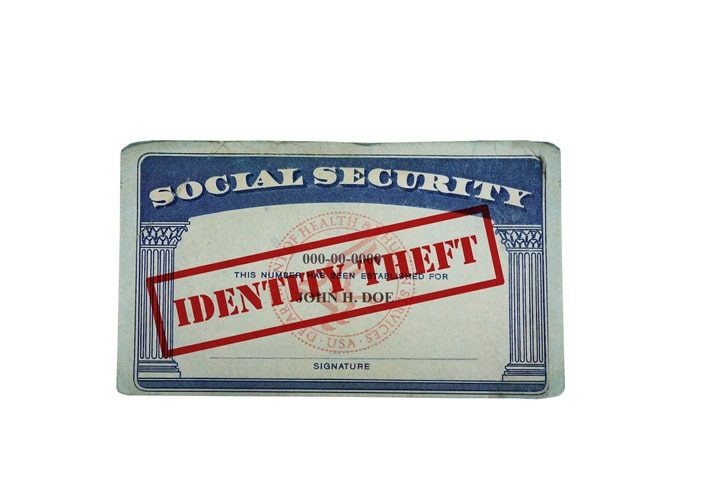It’s an unfortunate fact that there are criminals out there whose only job is to part you from your hard-earned wealth. They work around the clock, operating a variety of common financial scams designed to steal your personal information and/or your money. To protect your assets from exploitation, you need to remain vigilant. SageVest Wealth Management describes some of the most common financial scams and how to avoid them.
1) ‘Too Good To Be True’ Investment Scams
Common investment scams include:
- Pyramid or Ponzi schemes provide enticing ‘earnings’ the more people you sign up. However, they use the registration money from new recruits to provide the ‘profits’. These schemes are illegal.
- Lunch or dinner presentations offering real estate or other investment opportunities, with high pressure sales tactics for dessert.
- Penny stocks are sold online, enticing hungry investors with high returns. Once people buy in and the prices rise, the scammers empty the coffers, making the value plunge, and leaving you with worthless ‘investments’.
The best way to avoid investment scams is to work with a trusted wealth manager. SageVest Wealth Management is a top-ranked, fee-only financial advisory and investment management firm.
2) Phishing Emails
This email looks like a genuine notification from your financial institution, stating that there’s a problem with your account or credit card. To resolve it, you’ll need to click on the link provided, sign into your account, and update your information. While the website you’re directed to looks authentic, it’s not. Any information you input, including logins and passwords, will be stolen and used to access your accounts.
Never click on an email link, especially if there are spelling mistakes, grammatical errors, or blurry logos. Check website urls are secure i.e., begin with ‘https://’ (with the ‘s’ standing for secure). Also, remember that your financial institution has your information on file and therefore doesn’t need to ‘confirm it’.
3) Tax Scams
These surface each tax season. You receive a phone call from someone claiming to be from the IRS. They either demand money for overdue taxes, or ask you to verify your personal information, including your Social Security number. They may even threaten consequences if you don’t comply.
It may look and sound like they’re from the IRS, but villains can spoof phone numbers to make the caller ID read ‘IRS’. They even steal real tax inspectors’ information to appear more authentic. However, the IRS never calls without prior notification.
Avoid tax scams by working with a trusted tax professional, paying your taxes on time, and filing early so no one else can claim any potential refund.
4) Prize-Winning Scams
This scam begins with premium text and phone rates to ‘claim’ your prize. You then discover that to access it, you’ll need to:
- Send a wire to cover ‘processing fees’, ‘taxes’, or ‘customs duty’. You’ll never see that money again, nor the prize money.
- Provide your bank information. Unfortunately, the scammers intend to empty your account, not deposit prize money into it.
In the excitement of hearing you’ve won a holiday or the lottery, it can be hard to stop and remember that you didn’t enter anything, so this is a scam.
5) Small Business Scams
Again, these come in many formats. For example:
- Fake invoices, often labelled ‘outstanding’ to make you pay hurriedly.
- Phone calls claiming there’s a problem with your utilities, taxes, professional credentials, etc. The caller will request credit card or other sensitive information.
- An IT ‘specialist’ calls. They need access to your system to ‘fix an issue’ with your technology. Instead, they’ll install malware, or even download files from your computer during the screen-share session.
- While some sales calls inviting you to sign up for directory listings may be genuine, some are for directories that don’t even exist.
Develop professional relationships with genuine company reps, so you know who you’re dealing with. Train your staff to be scam- and tech-savvy.
6) Charitable Scams
Charitable scams are often prevalent by email, door-to-door collections or social media, following a natural disaster or other newsworthy crisis.
Research charities before donating. Donate online at the charity’s official website, or we can help you establish a donor advised fund to meet your planned giving needs and potentially provide tax benefits.
7) The Family Emergency Scam
A disturbing scam that often targets grandparents with a call or email claiming that your grandchild’s in trouble and needs money wired urgently.
Scammers rely on your emotional response. However, as with all financial decisions, it’s important to act rationally. Start by checking in with your family. Chances are, they’re all OK.
8) The ‘Nigerian Prince’ Scam
Someone from overseas emails you, claiming that they need to urgently deposit money in the US. If you’ll let them use your bank account, you can keep a cut of the money. While the reasons and characters change (they may even claim to be a distant relative), the outcome doesn’t: If you provide your banking information, your accounts will be emptied.
Use your spam filter to weed out such requests, or simply delete them from your inbox.
9) The Mailed Check Scam
You receive what looks like a real check in the mail. The scammers tell you that they’ve accidentally overpaid your ‘reimbursement’. They instruct you to cash the check at the bank and, while you’re there, wire them the over-payment amount. You follow their instructions, only to have the bank return the check as fake a few days later. You lose the wired money, plus any bank fees.
Never cash a check you’re not expecting.
10) Free Trial Scams
These start out as free or inexpensive e.g., a magazine subscription. However, they typically auto-renew, often with inflated charges, and can be difficult to cancel. Alternatively, the offer isn’t real at all and the scammers steal the credit card information you provide when you ‘sign up’.
Contact your bank or credit card company for assistance.
11) The Romance Scam
This scam plays out so gradually, sometimes over months, it can be hard to spot. However, beware of anyone who befriends you online, then asks for money. The reason the money’s needed can be hard to refuse e.g., if you’re a dog lover, it’ll be a vet bill, if you have kids, it’ll be urgent medical bills, etc.
Don’t let your heart strings get played: Never give money to people you haven’t met or don’t know well.
12) Online Shopping Or Auction Scams
With the prevalence of online shopping, scammers have developed a number of ways to exploit you, including:
- Sending you a faulty item, then demanding your bank information to ‘process a refund’ (which never appears).
- An email offering you a second chance to buy something you bid for via an online auction. Because the auction’s finished, the scammers tell you to pay outside of the usual channels. However, the item’s already sold and your money disappears.
- You get a phone or email notification that a recent purchase didn’t go through. In order to complete the transaction, you’ll have to provide information like your credit card info, Social Security number, etc. These will be used by identity thieves or credit card fraudsters.
- Disreputable ticket exchange sites may steal your credit card info, or sell you counterfeit or duplicate tickets.
Buy from reputable online sites only. Always use authorized payment channels, which afford better protections, especially if you pay by credit card.
13) Job And Employment Scams
These scams typically center upon made-up credentials that are worthless in the employment market, or home-working opportunities where the initial outlay far exceeds future income.
Local community colleges and other accredited educational institutions offer genuine professional development courses. Avoid jobs that require upfront costs.
14) The Student Aid Scam
Contrary to popular belief, a recent study shows young adults are most likely to fall victim to financial scams [1]. It’s no surprise, therefore, that student aid scams are on the rise. The scams often involve FAFSA issues that require verification of your personal information, including banking details, or alternatively, offers to reduce or eliminate your student loan debt – for a fee.
Federal student aid is paid directly to your university and doesn’t require your bank info. You can check your FAFSA progress by logging into your account. Never share your FAFSA login info with others. Refuse to pay upfront fees to consolidate or reduce your student debt.
15) The Fake Celebrity Scam
If you’re active on social media, be vigilant. The latest financial scam involves fake celebrities seeking donations for charity or offering amazing deals on endorsed products.
Verify celebrity profiles carefully. Never input your financial information on social media platforms. Regulate your privacy settings to keep your data safe. Only accept invitations from people you know.
SageVest Wealth Management is your trusted financial partner. We proudly accept a fiduciary role with our clients. This is a legal obligation, requiring us to always put your best interests first. If you’re seeking to secure your finances for today and tomorrow, please contact us to learn about our coordinated wealth management services.
References
Additional Resources
https://www.fbi.gov/scams-and-safety/common-fraud-schemes
https://www.usa.gov/common-scams-frauds
https://ehome.uspis.gov/fcsexternal/default.aspx
https://www.treasury.gov/tigta/contact_report_scam.shtml
https://www.justice.gov/disaster-fraud/how-report-disaster-related-fraud
https://www.usa.gov/state-consumer




